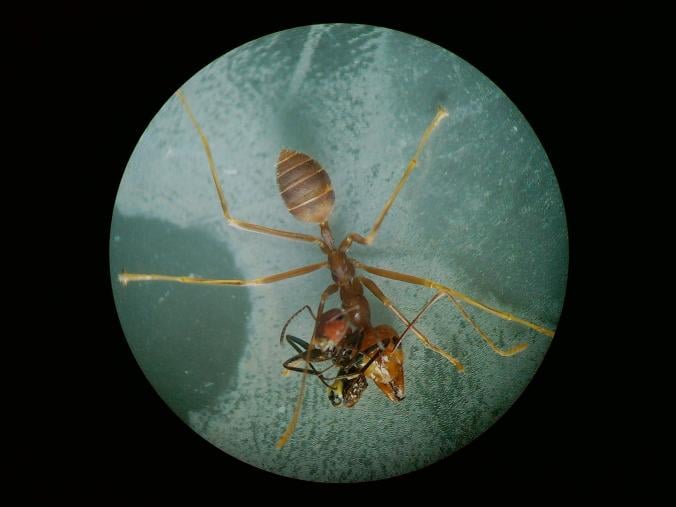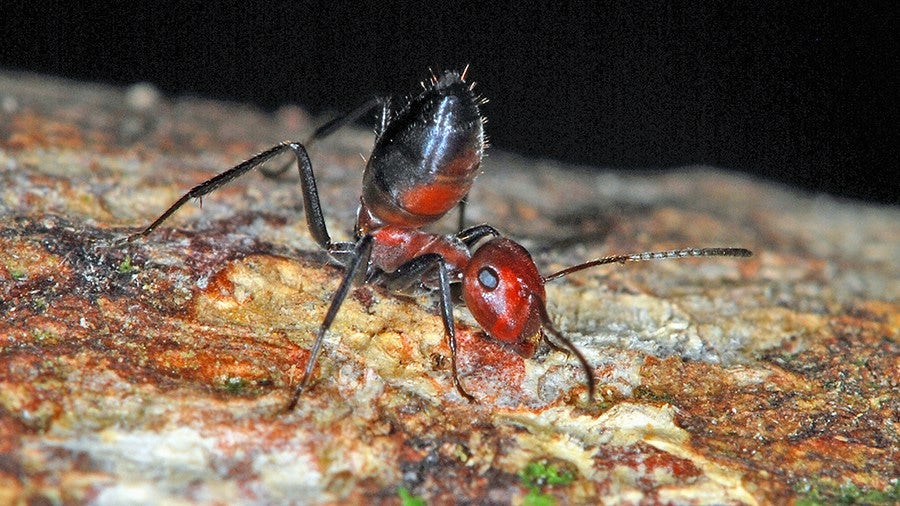Pesky as they may be, ants are truly incredible creatures. In addition to talents like predicting earthquakes and morphing into rafts to save themselves from drowning during floods, the industrious insects go all out to protect their own, often carrying wounded comrades back to the nest to heal. Now, researchers have discovered ants who explode and sacrifice themselves to save their colonies from predators.
Although scientists have known about the existence of exploding ants since 1916, this is the first new species of the rare insects discovered since 1935. The aptly named Colobopsis explodens were found in the rainforests of Borneo in Southeast Asia by an international team of researchers led by Alice Laciny, a graduate student at the Natural History Museum, Vienna. The study, published in the journal ZooKeys on April 19, 2018, was conducted over five separate 30-day-long trips undertaken by the scientists from 2014 to 2016.

The researchers noticed that during the day, when the colony ants ventured outside to forage for food, they would be closely monitored by a small army of “guards,” who touched each member as it went in and out of the nest. Upon encountering an intruder, the guard ant would angle its rear towards the invading creature and flex its stomach. This caused the ant’s body to explode and release a yellow, lethal substance housed inside its glandular sacs. According to Laciny, the toxic goo, which instantly killed the predator, had a distinct, surprisingly appetizing, smell that reminded her of curry!
The ability to explode, however, was not universal among the species and appeared to be possessed only by minor worker ants, usually the smallest ants of the colony. Even more interesting is that while the minor members were blowing themselves up, the major ergates — large worker ants with oversized plug-shaped heads — barricaded the nest’s entrance to prevent other potential enemies from entering.

While the defense measure may sound extreme, Tomer Czazkes believes it is necessary. The behavioral ecologist at Germany’s University of Regensburg, who specializes in ants, says since the insects live in large groups, they are a natural and easy source of food for predators. They, therefore, have to find innovative ways to protect themselves. Ants are not the only insects known to conduct this type of voluntary self-sacrifice, called autothysis. Older termites, who have lost their foraging and nest maintenance abilities, also grow sacs of lethal blue liquid which explode onto their enemies.
The researchers next hope to unravel more mysteries about the exploding ants, such as the make-up of their signature yellow goo, and how they use coordinated explosions to take down larger attackers.
Resources: nationalgeographic.com,theguardian.co.uk, newatlas.com
